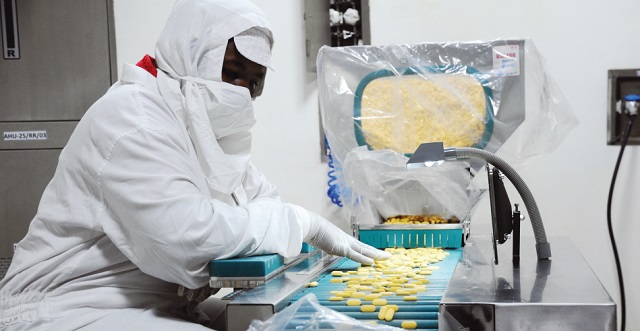
Kampala, Uganda | THE INDEPENDENT | Ugandan manufacturers still produce very low quantities of essential medicines catering for only about 20 percent of the country’s demand.
Speaking at a meeting organized by the Uganda Healthcare Federation, Nevin Bradford, the former CEO of Cipla Quality Chemicals Company said currently, there are over 600 essential medicines that have been listed as out of stock on the European Union and United Kingdom market, which presents an opportunity for Uganda since the country has significant potential for especially anti-malarial and anti-retroviral drugs.
He said the widespread stockouts elsewhere are caused by supply chain challenges that were exacerbated by the COVID-19 pandemic leading to stockouts of key medicines including antiretroviral therapies where manufacturers found it economically non-viable to keep supplying to the market. Uganda didn’t face these challenges, he says.
Statistics by the Ministry of Health show there are about 26-28 pharmaceutical manufacturers that are producing drugs in Uganda and are on an increase. However, pharma companies express worry that the market for drugs is not growing, and yet National Medical Stores (NMS) which would be the biggest buyer has had a persistent funding gap for a long time.
Apart from increasing funding for NMS, Bradford asks the government as a boost for the few private pharmaceutical companies, to extend the 12% tariff imposed on local manufacturing to a wider range of products. He says, in countries like Ghana have already banned the importation of medicines that are produced locally which helps local producers to break even.
Dr. Morris Seru the Principal Pharmacist in the Ministry of Health says extending the range of products would be detrimental and would limit the importation of medicines yet the local manufacturers have not yet developed enough capacity to fully satisfy local demand for essential medicine.
Currently among the medicines with the 12% tariff is Panadol.
According to Dennis Lwador Okidi, the Director of Supply Chain at the USAID-funded Uganda Strengthening Supply Chain Systems Activity, the government needs to harness the private sector to make a cost-effective contribution to the medicine supply chain.
He said donors are increasingly recognizing the role the private sector can play in fulfilling their aims considering that data is showing more people are seeking healthcare from private facilities.
Currently however, for donors like The U.S. President’s Emergency Plan for AIDS Relief (PEPFAR) or Global Fund to buy medicines from a local manufacturer, they have to be certified by the American Food and Drug Administration (FDA). For instance, while Cipla Quality Chemicals is the biggest ART manufacturer in Uganda, they still cannot supply PEPFAR-funded medicines.
*****
URN
 The Independent Uganda: You get the Truth we Pay the Price
The Independent Uganda: You get the Truth we Pay the Price


